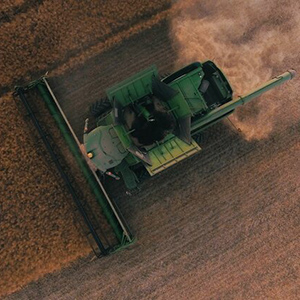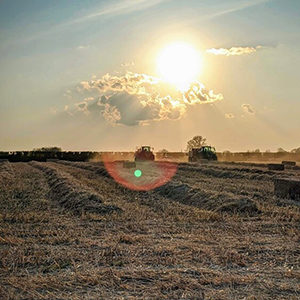
In any financial arrangement clearly defined expectations can be critical. It is always wise to make sure that these agreements are formalized in some sort of written document, reviewed and signed by all parties involved. Many of us appreciate the hand shake deal, but when dealing with agreements involving real estate, written documentation reduces mis-understandings and protects all parties in the event of problems. Furthermore, the negotiation process helps develop communication between the parties and allows discussion of things that might not otherwise be considered.
One of the most common types of farm leases are CASH RENTAL agreements. In other words, the tenant pays a flat rate per acre of land that they are farming. The tenant farmer assumes all of the risk, and reaps all of the rewards. The property owner typically is very hands off, and the rent does not fluctuate based on type of crop, or market values. These agreements are very straightforward. They should clearly define the following information:
The benefits of this type of arrangement are that the rent amount is set and known to both parties and can be planned on. The down side is that the farmer tenant assumes all the risk of the volatile agricultural market.
 Crop Shares
Crop SharesAnother common agreement is a CROP SHARE agreement. This means that the rent is paid as a share of the crop sale. The structure of these can vary. It could be a fairly straightforward split, for example owner gets 25% tenant gets 75%. These amounts can be tied to yield, market price, or both. Typically the higher the yield the lower the market price and vice versa. Or it could be structured that the property owner is more involved and gets a higher percentage. For example, the property owner purchases the seeds and gets 33% of the amount of crop sales.
The benefit of this type of arrangement is that the property owner can be more involved in the farming, which allows for different tax report of the income. It also allows the tenant to share the risk. This arrangement might be appealing to a retired farmer who still wants to keep a hand in the business, or as a way for a new farm owner to gain experience working with a more seasoned farmer. The downside is that there is no guaranteed income to the property owner.
Key provisions:
In a hybrid agreement, the parties agree to a flat rate per acre and then a percentage of the crop sale above a certain amount. This provides the best of both worlds. There is a guaranteed rental amount, but it also allows the risk/reward of crop growth to be spread to all parties.
Key factors to consider
 Important Farm Lease Provisions
Important Farm Lease ProvisionsAs discussed above, there are certain things that must be included. It is important that the key details are included in writing, however, legalese is not necessary. Clear, easy to understand, language should be used.
The following sections should absolutely be included:
What happens if there is a disagreement, who is going to resolve any dispute?
Other provisions to discuss and consider
There are significant tax implications based on the type of lease agreement, so we recommend that you talk to your tax professional before finalizing any farm lease agreement.
https://www.midway.k-state.edu/livestock/ag-lease-law.html
https://ag.purdue.edu/agecon/Pages/Leasing,-Crop-Share,-Cash-Rent-Resources.aspx
https://www.extension.iastate.edu/wright/news/
https://forms.sc.egov.usda.gov/efcommon/eFileServices/eFormsAdmin/FSA1940-0053.pdf

Rob Titus is a charismatic Kansas lawyer with over a decade of experience litigating all manner of civil law claims and lawsuits. His succinct and persuasive voice in court translates to clear and easy-to-follow writing for anyone looking for a fundamental understanding of their civil law options and rights.
Connect with the Titus Law Firm to get all the latest on Kansas civil law legal trends and courtroom developments.
Call Us Now To Get Your Case Reviewed (913) 543-4500